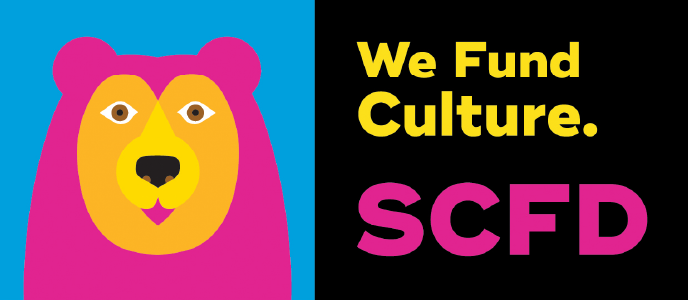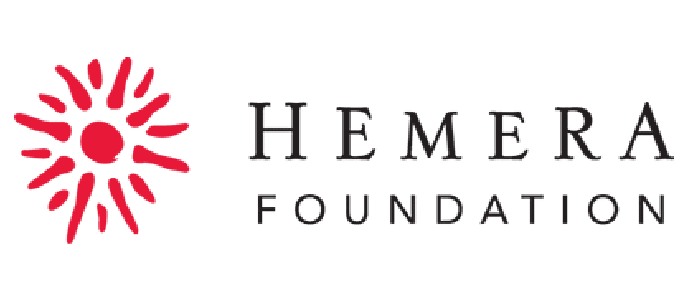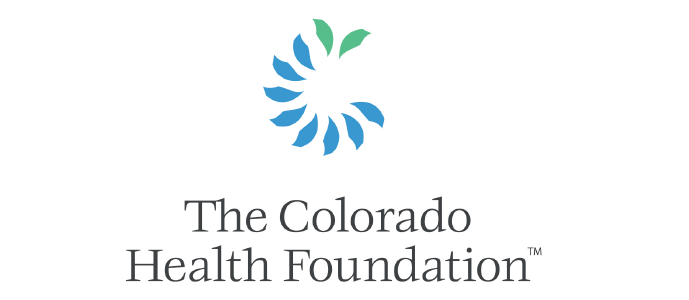RedLine is a proud partner and administrator of the Arts in Society grant. This collaborative program provides grants to both individuals and organizations that use art as a vehicle to promote social justice and community welfare.
We love highlighting our Arts in Society (AiS) grant recipients and all the unique and impactful projects made possible by their grant.
We’re excited continue this series with the 2023 AiS Grantee: Local Theater Company!
Learn all about the Local Theater Company and how they engage audiences through innovative performances that spark camaraderie, learning, and contemplation.
Tell us about your organization
Local Theater Company (Boulder, CO) is dedicated to the discovery, development and production of new theatrical works. We specialize in original works of exceptional quality.
We engage audiences through innovative performances that spark camaraderie, learning, and contemplation, and provide a resourceful environment for theater artists to take creative risks and develop their work.
We believe theater is a local experience. When you elect to join an audience, you create a new community where, for that brief span of time, everyone is a local.
Tell us about your first project that will utilize your AiS grant
We the People: The Democracy Cycle is a community project that uses theater practices to stimulate civil discourse on topics related to democracy in an effort to bridge the rural/urban divide in Colorado.
Community members from all backgrounds and experiences come together for 4-hour story circles, led by trained theater practitioners. The experiences are then transformed by local playwrights into three short plays, presented in conjunction with one another, that identify what separates us and what brings us together.
The project launched in July, 2023 with a series of internal and external training workshops led by Dr. Brent Blair, founder of USC’s Institute for Theater and Social Change, focused on Theatre of the Oppressed (TO) and Liberation Arts and Community Engagement (LACE) practices.
The internal workshops were designed to provide project creators–representatives from Local Theater Company (Boulder), Curious Theatre Company (Denver), Gunnison Valley Theater Festival (Gunnison), respective library representatives, and nonprofit leaders–training to facilitate story circles within their respective communities.
The external workshops invited the general public to better understand these practices and generated enthusiasm for the power of collective theater-making.
What’s next in the pipeline for your organization? What other projects are you dreaming up for next year, and how will your AiS grant help to support these efforts?
With training complete, partners are now in the process of identifying individual playwrights and facilitators to spearhead the story circles. The goal of story circles is to bring individuals from a variety of backgrounds, industries, and life experiences together to explore a common theme.
In utilizing the practices from Dr. Blair’s training, story circles focus on connecting participants to one another’s humanity through sections like the “convivio” where participants play games centered on learning more about one another.
Once a baseline of communication is established, facilitators then pose open-ended questions designed to inspire reflection to the group: Where do you feel most at home in your community? If you could change one thing about [community name], what would it be? What is one thing you are most concerned about in regards to the upcoming election? These questions are fodder for both independent, small- and large-group conversations.
From there, facilitators pose specific conflicts to the participants, leading to the “imago” portion. Imago guides participants into small groups where they have the opportunity to “sculpt” both sides of a binary conflict using only the human body.
Fellow participants then discuss their observations which engenders empathy. These practices were intended, as Augusto Boal (creator of Theatre of the Oppressed philosophy) states, “not to show the correct path, but only to offer the means by which all possible paths may be examined.”
With communities participating across the state and examining the same questions, the project will inevitably explore the rural-urban divide, demonstrating that, in using principles of democracy, we can illuminate both the similarities and differences that drive a community.
From there, three playwrights, one from each community/story circle, will create 20-30 minute theatrical pieces based on an agreed upon “recipe.” This recipe is a framework for the short plays. For example, the playwrights may decide that a single, defining prop must be used in all plays, or that a character or specific line of dialogue must appear in each play. These pieces will be informed by the observations from the community conversations.
First draft scripts will be completed by March, 2023. Then, the plays will be connected into a single evening of theater, one that expresses the perspective of three communities. A developmental workshop reading of all three scripts will be presented in each of the three communities, Boulder, Denver, and Gunnison, in summer 2024 with an ensemble of performers.
Learn all about the TRP Pilot Internship Program and how it facilitates personal and professional growth opportunities for incarcerated artists.
Administered by RedLine, Arts in Society (AiS) is a grant program supporting cross-sector work through the arts across Colorado.









